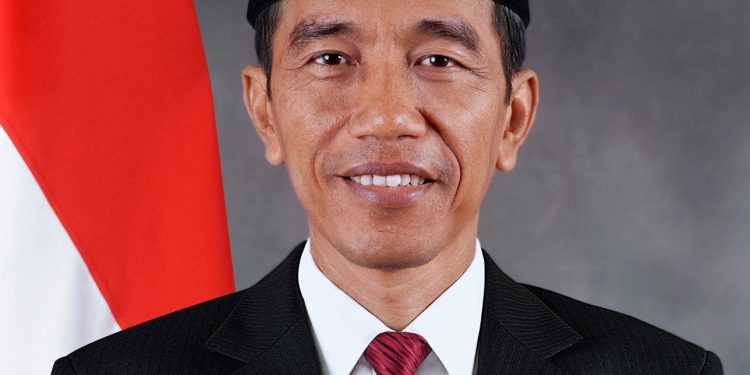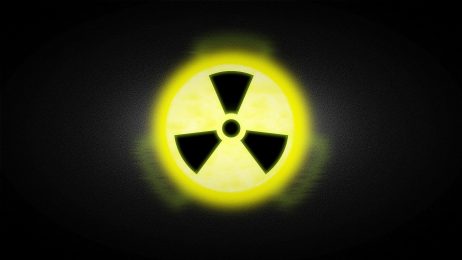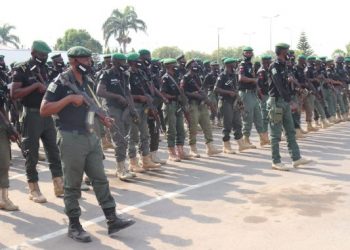Does the Joko Widodo government have nuclear aspirations?
Is Indonesia looking to go nuclear under the Joko Widodo government? In February 2020, Luhut Binsar Pandjaitan, the coordinating minister of maritime affairs and former chief of staff to President Widodo, publicly complained that powerful countries like the United States do not consider Indonesia a serious international player because of its lack of nuclear weapons, seizing some local news headlines. The political heavyweight, a retired four-star army general, is behind a recent bout of interest in cutting-edge nuclear reactor technologies to capitalize on the country’s abundant mineral resources.
In June 2020, Defense Minister Prabowo Subianto held meetings with the governor of the Banka Belitung Islands and it is known that they discussed setting up a ministerial regional office there. Just off the east coast of Sumatra, the islands are estimated to hold 95 percent of Indonesia’s thorium. Thorium itself cannot be used in traditional thermal neutron reactors but upon absorbing a neutron will transmute to uranium-233, an excellent fissile fuel material especially for (advanced) molten salt reactors. In July 2020, a meeting between Luhut and Prabowo was reported for their discussions on the use of tin and rare earth elements.
The sensitivity lies in that thorium and uranium can be extracted from unconventional sources, particularly monazite, which is often co-located with Indonesia’s abundant tin mineral resources. The Defense Ministry appears interested in building a thorium molten salt reactor of a small size – with an electricity generation capacity of 50 megawatts – by 2025 for particular national security purposes like power generation for marine vehicles. Nuclear propulsion will make such vessels capable of longer missions without the need of frequent fuel recharging, compared to conventional diesel-powered ones.
It is uncertain whether concrete steps beyond leadership rhetoric are being taken, and there are questions about how these ministries will be able to mobilize nuclear expertise and industrial capabilities locally. There has long been skepticism about the feasibility of thorium molten salt reactor technologies among nuclear scientists at Indonesia’s National Nuclear Energy Agency, or BATAN, its acronym in the Indonesian language (Badan Tenaga Nuklir Nasional). BATAN scientists have said a commercial thorium molten salt reactor may be made operational only after 2040 despite its advantage in being a highly safe system and its relatively easy and cheap construction.
Nonetheless, the Defense Ministry signed an agreement with U.S.-based nuclear company ThorCon International in July 2020 to collaborate on the research and development of a small thorium molten salt reactor. Initially, ThorCon had made an ambitious proposal in March 2019 to invest $1.2 billion to develop a larger, 500 megawatt floating nuclear power plant in Indonesia by 2027. To this end, ThorCon has been engaging with key state-owned enterprises such as shipbuilder PT PAL Indonesia, electricity provider PT PLN, and tin miner PT Timah through a series of MOUs and high-level engagements.
National Defense Motivation to Reinvigorate Indonesia’s Interest in Nuclear?
BATAN and the broader nuclear research community and industrial stakeholders in Indonesia may find in the new policy momentum an opportunity to speed up the introduction of nuclear energy. Their efforts to promote nuclear energy in the past decades have been largely unsuccessful due to widespread fears about the risks associated with the Pacific Ring of Fire, a region prone to earthquakes and volcanic eruptions. The relative cost disadvantage of conventional nuclear energy was also a frustrating factor because resource-abundant Indonesia has other cheaper and safer means to produce renewable energy through investments in solar, wind, hydro, geothermal, and other alternatives.
Given the policy context, nuclear scientists and industries may welcome new political backing from powerful ministries and politicians to mainstream nuclear advocacy beyond purely commercial or technical calculations. Currently, Indonesia has three small research reactors, without power-generating commercial reactors. President Sukarno (1945-1967) considered nuclear weapons options in the mid-1960s. But after his removal from power in 1967, the Indonesian government agreed to a series of international agreements, committing the country to non-proliferation mandates and the peaceful use of nuclear technology.
Unconventional Uranium Sources Development: Inspection Challenges
The case of Indonesia as a resource-abundant nuclear aspirant in the developing world is also illustrative of some of the growing predicaments faced by the international safeguards community. In other words, nuclear materials inspection is not only about identifying uranium deposits and their whereabouts after excavation. Increasingly the inspection business concerns thorium, as well as unconventional uranium resources such as phosphate rocks, monazite, rare-earth elements, black shales, lignite, and some seawater experiments. Recent technological advancements have made it possible to recover uranium from different unconventional minerals.
Indeed, Indonesia is very keen to develop mineral purification and separation technologies to take advantage of its rich mineral resources, and BATAN is spearheading such efforts for radioactive minerals development. Open source research on the news and scientific publications show that Indonesian researchers are conducting a substantial amount of research into extraction of uranium and thorium from unconventional sources, particularly monazite, which is often co-located with the country’s tin ore mining. Indonesia is the world’s largest tin producer. In May 2020, Indonesia implemented significant changes to its mining law, notably introducing a new type of license specific to the mining of radioactive materials.
Typically these unconventional nuclear materials go underreported in global uranium statistics such as the OECD’s Red Book. There are concerns that these unusual nuclear sources can be routes to clandestine uranium acquisition and potential proliferation risks by extension. IAEA’s inspection resources may need readjustment to cope with the fast-changing technical environment and a growing list of emerging nuclear aspirants, often possessing large nuclear resources under a suboptimal national governance system.
Indonesia is a nuclear frontrunner within the Association of Southeast Asian Nations (ASEAN), together with Malaysia, the Philippines, Thailand, and Vietnam. As many countries in Southeast Asia desire nuclear power as a sustainable energy solution, successful establishment of commercial nuclear energy is seen as a “development milestone,” perhaps also a matter of affirming regional leadership status and national prestige. It remains to be seen whether Jakarta’s emerging interest in nuclear for national defense would be a welcome breakthrough for the country’s nuclear advocates.
Dr. Sung-Mi Kim is a senior researcher at Ridgeway Information, a London-based research firm specializing in the international security issues involving nuclear energy and its peaceful use. The company’s long-term clients include the U.K. government, the International Atomic Energy Agency (IAEA) and other U.N. organizations. Sung-Mi publishes and teaches on foreign policy issues surrounding the Korean Peninsula and the broader Asia-Pacific. She earned her PhD from the University of Cambridge and was a Visiting Fellow at Chatham House (2015-2016).









Good post! We will be linking to this particularly great post on our site. Keep up the great writing
I very delighted to find this internet site on bing, just what I was searching for as well saved to fav